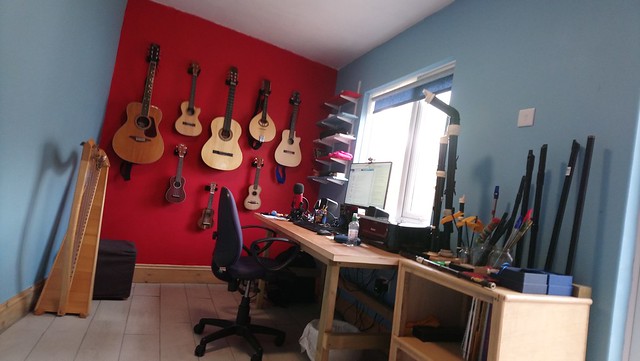Podcast: Play in new window | Download
In this episode we discover the possible Celtic roots of English and French words for seagull.
The Proto-Celtic word *wailannā means seagull, and possibly comes from the Proto-Indo-European *wáy (oh! ah! woe! alas!), and maybe related to *waylos (howler, wolf) [source].
Related words in the modern Celtic languages include:
- faoileán = gull, seagull in Irish
- faoileann [fɯːlən̪ˠ] = gull, seagull, common gull in Scottish Gaelic
- foillan = gull, seagull in Manx
- gwylan [ˈɡʊɨ̯lan / ˈɡʊi̯lan] = sea-gull, fair maiden, glutton in Welsh
- golan [ˈɡoːlan / ˈɡʊlɐn] = gull, seagull in Cornish
- gouelan [ˈɡweːlãn] = seagull in Breton
For more about words for gulls and related things in Celtic languages, see the Celtiadur post: Gulls
The English word gull comes from Middle English gulle (gull, water bird), which was probably borrowed from a Brythonic language (Welsh or Cornish) [source].
The French word goéland [ɡɔ.e.lɑ̃] (gull, herring gull) was borrowed from Middle Breton goelan (gull, seagull) in the 15th century [source].
A more common French word for (sea)gull is mouette [mwɛt], which comes from Middle French mouette (seagull) from Old French moette (seagull), from maoe (seagull), from Old English mǣw (seagull) [source].
The Old Englsh word mǣw, comes from Proto-Germanic *maiwiz (seagull), from a non-Indo-European substrate, or is of imitative origin. It’s also found in Middle English as mewe (gull, seagull), in the archaic / dialectal English word mew (gull, seagull), in Dutch as meeuw (seagull), and in German as Möwe (seagull) [source].
Radio Omniglot podcasts are brought to you in association with Blubrry Podcast Hosting, a great place to host your podcasts. Get your first month free with the promo code omniglot.
















